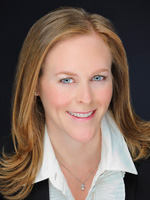
Sept. 18, 2013 – The legal profession, like many other industries, took a wild economic ride the past five years. While the market is slowly improving, law firms will be forced to make foundational changes to stay competitive in this new age, one expert says.
“A seismic shift in the legal market means law firms must do things differently,” said Deborah Epstein Henry, a law firm consultant the past 15 years and founder of Flex-Time Lawyers LLC, based in Philadelphia. “Firms will need to reinvent themselves to make their current models sustainable.”
For instance, firms who use straight billable hours have more difficulty in a buyer’s market, where prospective clients have more leverage to drive costs. The new law firm model will offer non-traditional fee arrangements that give clients more predictability.
“The billable hour may not align with a client’s goals for predictability, efficiency, and quality,” said Henry, a former litigator and a best-selling author of Law and Reorder (ABA, 2010). “Alternative fee arrangements are giving clients more options to choose among firms, which are no longer one-stop-shops.”
Henry says solo and small firms – the majority of firms in Wisconsin – are in a good spot, because smaller firms can implement change much easier. She works with solo and small firms in the U.S. and abroad to pinpoint where change is needed.
“For those solo and small firms that have not already done so, I would recommend considering alternative fee arrangements that give clients more options,” Henry said.
Henry also consults larger firms with corporate clients that have new expectations for outside counsel. “There’s significant change in legal department expectations. Increasingly, they look to outside counsel to develop creative ways to reduce legal costs, so these legal departments are more receptive to new legal models,” Henry said.
From big firms to solos, Henry says firms should be proactive in determining what clients want, and finding ways to provide it. At least one large law firm in Wisconsin is doing just that. And smaller firms can find new paths to success too, she says.
Internationally Recognized Law Firm Consultant Will Discuss New Law Firm Models at Wisconsin and Solo Small Firm Conference in Wisconsin Dells

“The changed legal market is dictating a departure from the traditional law firm model,” said Deborah Epstein Henry, a featured speaker at the upcoming Wisconsin Solo and Small Firm Conference, Oct. 24-26 in Wisconsin Dells.
To view the schedule or to register, visit the WSSFC homepage.
Emerging from the Storm
The legal market is still in the “financial doldrums,” according to Georgetown University Law Center’s “2013 Report on the State of the Legal Market.”
In 2012, demand for legal services grew just 0.5 percent, well below the 3.9 percent annual growth rate enjoyed prior to 2008, according to the report. On average, partners and associates bill 100 hours less than 2006 and 2007 levels, leading to law firm downsizing and restructuring, reduced billing rates, and an overall market squeeze.
“Moreover, it is now increasingly clear that, even when more normal growth returns, the market will be very different from the way it looked in the pre-2008 period,” states the report, which encourages law firms to refocus their strategies in this buyer’s market.
The report focuses on large firms, which experience the major highs and lows of turbulent times, mostly firms in major metropolitan areas, like Milwaukee.
Fred Lautz, managing partner at Quarles and Brady LLP in Milwaukee, says the impact of recession on clients and prospects definitely affected the firm.
“As business growth slowed and businesses contracted, many robust areas of legal services dropped off precipitously, including commercial lending activity, real estate development, mergers and acquisitions, business expansions and the like,” he said.
“With the lack of growing legal needs, expanding existing client relationships and attracting new clients became much more of a competitive process,” Lautz said.
Companies began bringing more legal work in-house and using contract lawyers, or outsourcing legal process work, such as document review, to lawyers in foreign countries. They reduced the number of firms used for outside work, and forced price concessions and value-added services on “preferred” firms in exchange for larger volumes of work, Lautz said.
“These developments, many of which we believe are here to stay, caused us to rethink our strategy and implement disciplined planning processes to identify developing market opportunities and position ourselves in front of those opportunities,” Lautz said.
In the last 18 months, Lautz says the market has improved. The strategic planning and positioning allowed Quarles & Brady to weather the storm, as the firm emerged with different models and strategies that will help it navigate moving forward.
For instance, with help from Notre Dame University, the firm developed and subsidized a mini-MBA program and 25 younger partners participated. The 18-month program was designed to help partners better understand the needs of business clients.
“The program helped our partners hone their own business skills to better manage the business side of their individual practices and the more general business of the firm,” said Lautz, a mergers and acquisitions attorney.
Externally, the firm has found numerous opportunities to provide value-added services without additional fees or charges, Lautz said, including on-site training for clients on developing legal issues. The firm also develops legal seminars for in-house lawyers.
“We have also implemented legal budgeting, project management disciplines and alternative pricing arrangements which provide clients with more transparency and predictability around legal fees.”
While larger firms such as Quarles & Brady may have more resources to implement innovative ideas, Henry says smaller firms can respond to an ever-changing legal environment and keep their competitive edge by taking smaller steps.
New Models and Strategies for Solo and Small Firms
Smaller firms have certainly felt the economic hit these past five years, some in different ways. Eau Claire attorney Daniel Freund runs Freund Law Office, a two-person firm providing bankruptcy, debt relief and debt collection services.
The recession meant more work. As the economy slowly improves, there are fewer clients coming through the door. “I am happy to see the economy improve,” Freund said. “Unfortunately, the result for my office’s caseload makes me less happy.”
Freund’s firm recently secured new work as trustee in Chapter 7 bankruptcy cases, and is focusing more time on marketing. And while some firms flourish in tough times, based on the nature of the work, the opposite is also true.
For many firms, an improved economy will mean more clients and more work to go around. But one thing is certain: clients will continue to drive fees, and firms will need new strategies to compete for business. Alternative fees are a good place to start.
The most effective alternative fee arrangements will better align client and law firm interests, Henry says. For instance, some firms use so-called success or incentive fees, charging a flat rate while giving clients an option to pay bonus fees for good results.
“These arrangements give clients discretion to reward a firm, and it creates an incentive for firms to perform at a very high level,” Henry says. Firms are also using variations on the billable hour, such as volume discounts and fee caps, to attract and keep clients.
Aside from fees, Henry says technology is allowing smaller firms to be more competitive as legal services are increasingly “unbundled” and disaggregated.
Henry, a featured speaker at the upcoming Wisconsin Solo and Small Firm Conference, Oct. 24-26 in Wisconsin Dells, says technology provides advantages for smaller firms to compete with bigger outfits, and more flexibility to cut overhead costs.
“In order for smaller firms to be really competitive, they should be rethinking overhead costs and how much they transfer costs to clients in legal fees,” Henry said. “Increasingly, clients feel very strongly that they don’t want to absorb those costs.”
For instance, clients don’t want to pay for the costs of training new lawyers. “Acquiring new talent becomes more of an expensive proposition because that’s not a shared cost,” Henry says. “This whole idea of junior lawyer training is increasingly becoming a problem in the profession. I’ll talk a lot about stratification in the talent pool.”
Henry also encourages smaller firms to be more thoughtful about partnering with traditional competitors. “There is increased interest in collaboration among firms in complimentary practice areas, and significant cross-marketing opportunities,” she said.
At the conference, Henry will discuss various trends she has identified and how solo and small firms can position themselves to succeed in response to these trends. She’ll explore how firms can be proactive in developing new law firm models.
“The changed legal market is dictating a departure from the traditional law firm model,” Henry said. “But change can be an exciting new venture.”
About the WSSFC
The Wisconsin Solo and Small Firm Conference (WSSFC) will take place Oct. 24-26 at the Kalahari Resort in Wisconsin Dells. More than 30 breakout sessions will give lawyers plenty of options to collect up to 14 CLE credits.
State Bar members, staff of State Bar members, and WALA members get an early-bird special of $269 (a $50 discount) through Sept. 26, which includes a CLE luncheon. Visit the WSSFC homepage to view the schedule or to register.
